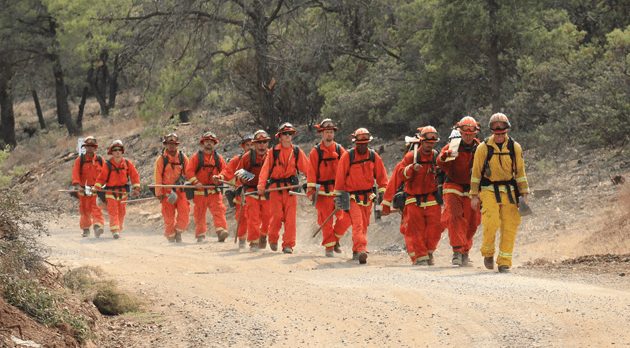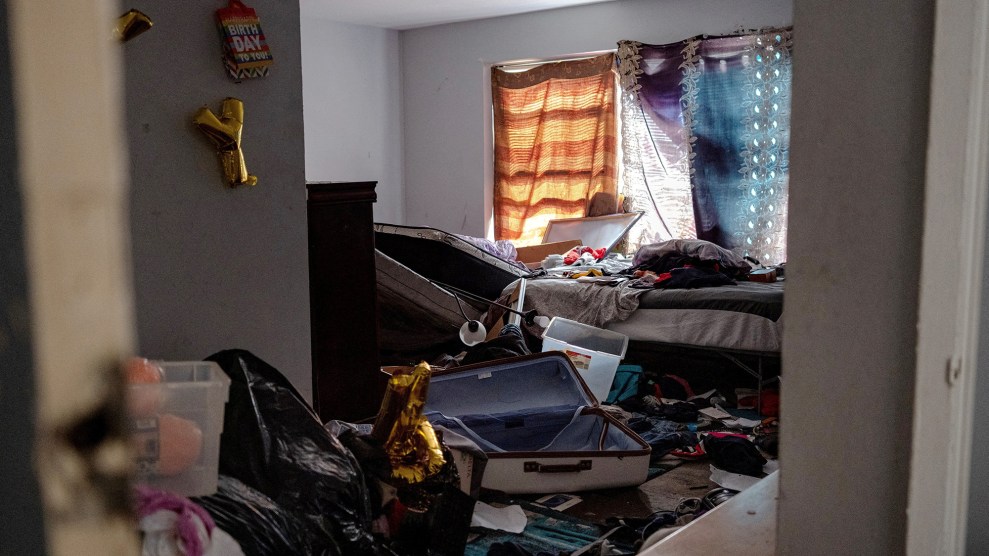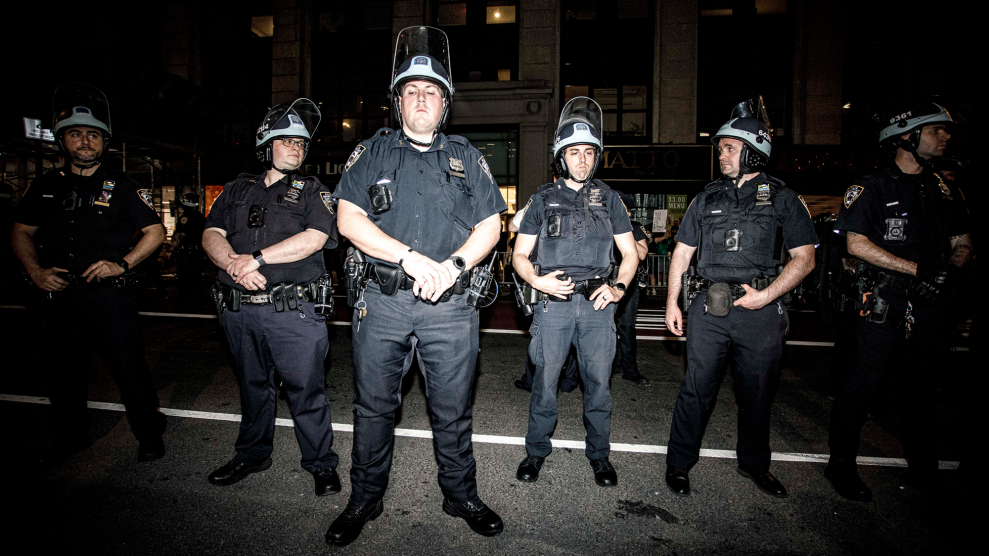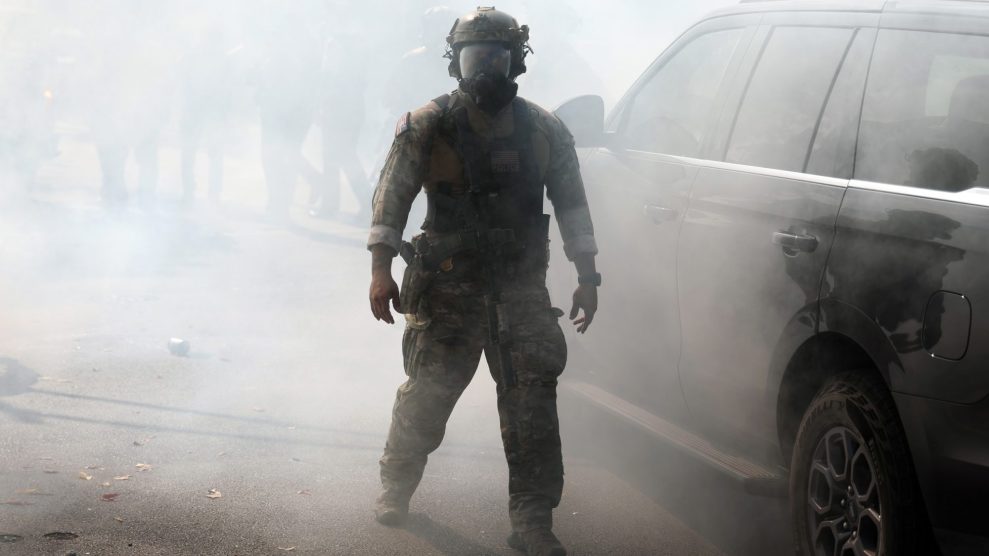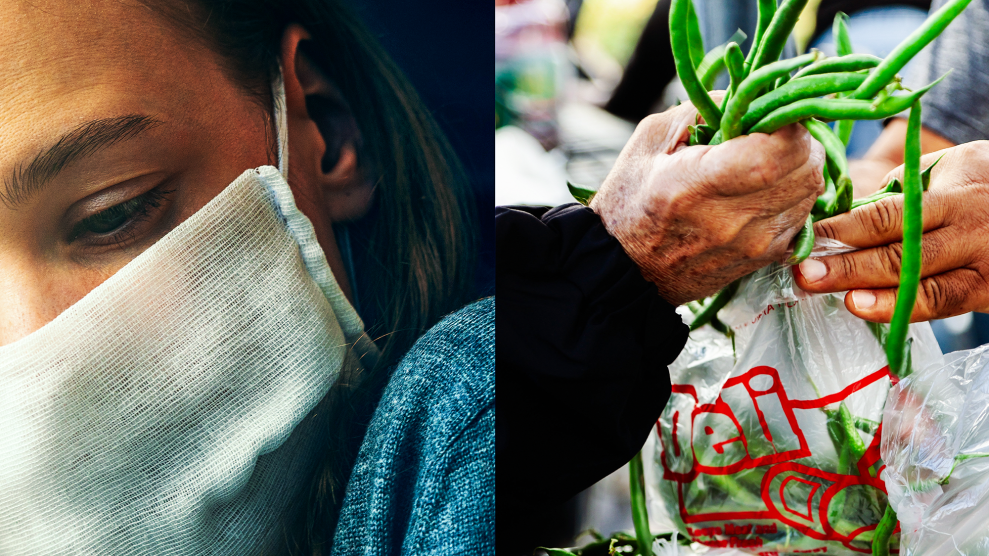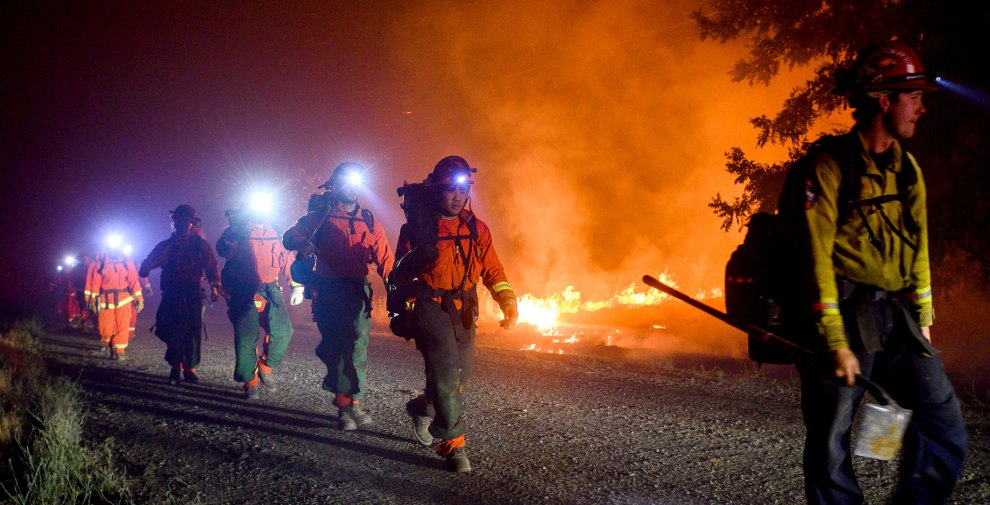
Inmate firefighters, left, battle the Quail Fire burning near Winters, Calif., on Sunday, June 7, 2020. Noah Berger/AP
California is burning: Ongoing blazes have devoured more than 1 million acres this year so far, killing at least seven people and destroying hundreds of homes. The state is also facing a firefighter shortage. But even so, it is preventing a trained group of people from assisting in its unending annual fight against wildfires: former state inmates. And that’s despite the fact it trains these inmates to fight fires and exploits their labor when they are imprisoned.
That could soon change. The state Assembly has passed legislation that would allow formerly incarcerated people who participate in the state’s firefighting program to expunge their criminal records upon release from custody and pursue firefighting jobs. (People convicted of certain crimes, like certain violent felonies and sex offenses, would be ineligible.) The Senate would need to approve the legislation before its session ends on Monday. If approved, it would go to Gov. Gavin Newsom’s desk.
As wildfires rage throughout California, it’s clear that the state could use additional assistance from trained former inmates, but their criminal records prevent them from obtaining firefighting jobs after their stint in prison is over.
As Heather Knight wrote in the San Francisco Chronicle: “It’s a ridiculous catch-22 that California—engulfed in apocalyptic fires because of climate change that are likely to grow worse—cannot afford to continue.” California currently depends on 3,100 inmates, who have volunteered, have shown good behavior while imprisoned, and have not been convicted of arson and other matters, at 43 fire camps, most of whom are qualified to work the frontlines.
And yet, if these same trained inmates have a felony record, they face insurmountable odds in obtaining an Emergency Medical Technician certification to pursue a job they are trained to do—one that pays, on average, $146,000 in California. While these trained inmates are wards of the state, as my colleague Julia Lurie wrote in 2015, they “receive a sentence reduction and $1 per hour while fighting fires, saving the state $80 million per year.” Or, as Jeffrey Choate, who fought wildfires as a participant in California’s exploitative labor system and was released in July, put it: “It’s straight slave labor.”
The least California could do would be to provide a pathway for these formerly incarcerated firefighters to capitalize on the skills they gained while doing this backbreaking—and lifesaving—work.

